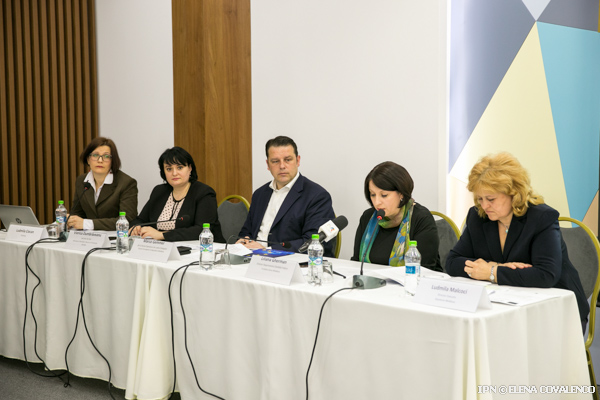Social services for children from vulnerable groups and people with intellectual and psychosocial disabilities do not respond effectively to the tendency of increasing vulnerability faced by these groups of people. A mapping of existing social services at the local level shows a big discrepancy between services for these groups and other categories of beneficiaries of social services.
According to sociologist Ludmila Ciocan, the author of the study, at national level there was an increase in the number of children from vulnerable groups, from 31 thousand in 2015, to 34 thousand in 2017. The number of recorded persons with intellectual and psychosocial disabilities grew by almost one thousand. The mapping shows that almost every district has several social services for children in vulnerable groups, but there are districts where there are no services at all for people with intellectual and psychosocial disabilities.
The number of newly created services locally is very low compared to the need for services for these groups. If children in vulnerable groups are better kept record of, things are different for people with intellectual and psychosocial disabilities. It has been found that many districts do not have any data on the number of people with intellectual and psychosocial disabilities that require social services. Territorial units that do hold such data reported that nearly 3,700 people with intellectual and psychosocial disabilities require social services but do not receive them because of their lack at the local level, says Ludmila Ciocan.
The sociologist also notes that the social services package approved by the Government to be implemented this year does not include any kind of family-type placement for children in risk situations and no alternative services to residential institutions for people with intellectual and psychosocial disabilities. This is because many local administrations can not support such services from their local budgets. As concerns existing services, actual and potential beneficiaries say they have limited access to them. The reasons include the bid distances from their homes to the services, the lack of adequate transport, the large discrepancy between the beneficiary's needs and the offer of services, as well as the bureaucratic obstacles in applying for such services.
Viorica Dumbrăveanu, state secretary at the Ministry of Health and Social Protection, said that Moldova faces major challenges related to the development of social services. This is closely related to the administrative-territorial reform, which has changed the priorities of local administrations.
The study on social services for people with intellectual and psychosocial disabilities and children from vulnerable groups was developed under the EU-funded project “Better Social Services through a Sustainable Partnership between Civil Society and Government”.

